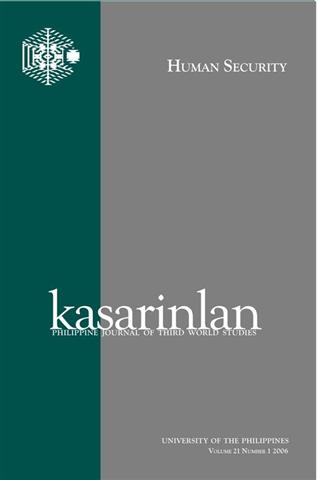Gender Equality Legislation: Addressing Gender Issues in Conditions of Work (A Policy Review)
Abstract
The discourse of gender equality has developed into two major perspectives:the formal and the substantive equality approach. Most recently, the dominance approach or nonsubordination theory has been proposed as an alternative and a critiqueof the earlier models. Another recent development is the postmodern feminist approach, with its strong anti-essentialist bias that challenges the notion of a monolithic “women’s
experience” independent of other facets of experience like race, class, and sexual orientation. With the ratification of the Convention on the Elimination of Discrimination against Women (CEDAW), the Philippine government has adopted the substantive equality approach in legislation. CEDAW’s substantive equality approach, however, permeates the boundaries of other approaches. This paper examines some of
these legislative gains in women’s rights and the extent to which these have addressed the gender issues in conditions of work and welfare facilities and promoted gender equality. Part of the analysis is to find out to what extent these laws have come up to
international labor standards, especially in terms of providing better working opportunities for women and providing maternal protection for them, and to examine how the discourse on gender equality has influenced the form and content of the so-called “gender equality legislation”.
Published
2007-11-15
Section
Articles
Keywords
gender equality; legislation; CEDAW; international labor standards
By submitting a manuscript, the authors agree that the exclusive rights to reproduce and distribute the article have been given to the Third World Studies Center.



